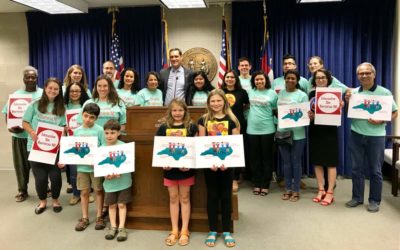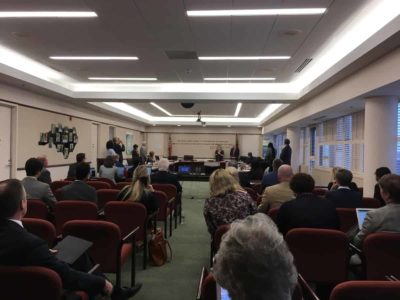The potential for workers to advance themselves economically over the course of their work lives is the foundation of what has traditionally been referred to as the “American Dream,” but not everyone has the same opportunities to advance. Research shows upward mobility in 22 of North Carolina’s 24 “commuting zones” ranks within the bottom quarter nationally — and Charlotte, Raleigh, Fayetteville, and Greensboro rank in the bottom 10 of the nation’s 100 largest commuting zones.
The Oct. 15, 2019 Emerging Issues Forum, ReCONNECT to Economic Opportunity, will focus on one critical element of the advancement equation: promoting individuals’ pursuit of postsecondary degrees or credentials that enable them to compete for jobs at higher income levels. We will examine ways to connect adult workers (aged 25-54 years old) to information about sustainable-wage employment through employers, training entities, or support institutions. We’ll identify innovative skill-enhancements and promote programs that remove non-academic barriers to, and provide support for, postsecondary education.
Increased economic opportunity will produce benefits for individuals, communities, and our state. Employers will have access to a talent pipeline that meets their needs, workers and their families will see improved living standards, and the communities where these people live will be stronger and more resilient. Also, when more individuals earn higher wages, they have more disposable income and tax burdens can be distributed across more earners.
For decades after World War II, the state’s economy offered abundant opportunities to earn middle class wages with a high school diploma or less. But over the past half-century, automation and globalization restructured the state’s economy, downsizing the manufacturing workforce. The new economy created many new service sector jobs paying low wages, but removed many clear pathways for low-wage workers to advance. Today, a strong consensus exists that a principal pathway to improved earnings lies in some combination of additional education beyond a high school diploma and higher skill levels.
Wages are largely driven by education attainment, and obtaining a postsecondary degree or credential is a critical pathway to career-based economic opportunity. To meet projected demands in the workplace, the myFutureNC Commission has set an attainment goal of having two million more 25 to 44-year-olds in our state earn a high-quality credential or postsecondary degree by 2030. One way to achieve this goal is to remove barriers students face in order to access postsecondary education, and provide supportive services when unforeseen life circumstances compromise their ability to remain enrolled.
The Emerging Issues Forum, ReCONNECT to Economic Opportunity, will feature organizations that create and strengthen pathways to higher-paying jobs for adults currently in the workforce. We will highlight education innovations and employer-supported, work-based training models that prepare individuals for a rapidly-changing labor market.
The forum’s focus — opportunity pathways for adults 25 to 54 — resonates with me. My prior work experiences reminded me that getting a job and earned income are only one dimension of labor force participation. Work is also about knowing where you are, where you want to go, and how to get there. Several years ago, I sought a career change but didn’t know how to transition into a new, unrelated field without creating negative economic consequences (i.e., going back to school full-time, quitting my job, going into debt, etc.) While working, I took classes at the local community college and, through trial and error, became more articulate in linking past experience and skills to employer needs. It took three years of sustained effort, and overcoming challenges, to finally change my employment outlook.
After high school or college, there are fewer structured career-support networks that provide information, access, and opportunities for adults with busy, complicated lives. Our forum will focus on existing workers, normalize non-linear paths to sustainable jobs, and affirm the fact that institutional interventions to overcome labor market challenges are not exclusively for youth. This forum will also serve as a reminder that obtaining skills that are value-adds to potential employers is one way to connect to career opportunities and increased earnings in the skills-based economy.





